Fleurs du Mal Magazine


Or see the index

Mark Akenside
(1721 – 1770)
Amoret
If rightly tuneful bards decide,
If it be fix’d in Love’s decrees,
That Beauty ought not to be tried
But by its native power to please,
Then tell me, youths and lovers, tell
What fair can Amoret excel?
Behold that bright unsullied smile,
And wisdom speaking in her mien:
Yetshe so artless all the while,
So little studious to be seen
We naught but instant gladness know,
Nor think to whom the gift we owe.
But neither music, nor the powers
Of youth and mirth and frolic cheer,
Add half the sunshine to the hours,
Or make life’s prospect half so clear,
As memory brings it to the eye
From scenes where Amoret was by.
This, sure, is Beauty’s happiest part;
This gives the most unbounded sway;
This shall enchant the subject heart
When rose and lily fade away;
And she be still, in spite of Time,
Sweet Amoret in all her prime.
Mark Akenside poetry
fleursdumal.nl magazine
More in: Archive A-B, CLASSIC POETRY
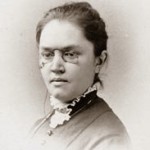
Katharine Lee Bates
(1859 – 1929)
Blood Road
The Old Year groaned as he trudged away,
His guilty shadow black on the snow,
And the heart of the glad New Year turned grey
At the road Time bade him go.
“O Gaffer Time, is it blood-road still?
Is the noontide dark as the stormy morn?
Is man’s will yet as a wild beast’s will?
When shall the Christ be born?”
He laughed as he answered, grim Gaffer Time,
Whose laugh is sadder than all men’s moan.
“That name rides high on our wrath and crime,
For the Light in darkness shone.
“And thou, fair youngling, wilt mend the tale?”
The New Year stared on the misty word,
Where at foot of a cross all lustrous pale
Men raged for their gods of gold.
“Come back, Old Year, with thy burden bent.
Come back and settle thine own dark debt.”
“Nay, let me haste where the years repent,
For I’ve seen what I would forget.”
“And I, the first of a stately train,
The tramp of a century heard behind,
Must I be fouled with thy murder-stain?
Is there no pure path to find?”
The Old Year sneered as he limped away
To the place of his penance dim and far.
The New Year stood in the gates of day,
Crowned with the morning star.
Katharine Lee Bates poetry
fleursdumal.nl magazine
More in: Archive A-B, CLASSIC POETRY
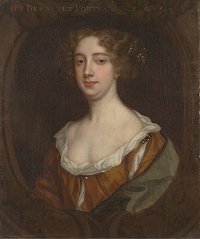
Aphra Behn
(1640 – 1689)
The Dream
All trembling in my arms Aminta lay,
Defending of the bliss I strove to take;
Raising my rapture by her kind delay,
Her force so charming was and weak.
The soft resistance did betray the grant,
While I pressed on the heaven of my desires;
Her rising breasts with nimbler motions pant;
Her dying eyes assume new fires.
Now to the height of languishment she grows,
And still her looks new charms put on;
Now the last mystery of Love she knows,
We sigh, and kiss: I waked, and all was done.
`Twas but a dream, yet by my heart I knew,
Which still was panting, part of it was true:
Oh how I strove the rest to have believed;
Ashamed and angry to be undeceived!
Aphra Behn poetry
fleursdumal.nl magazine
More in: Archive A-B, CLASSIC POETRY

Mark Akenside
(1721 – 1770)
Hymn To Science
Science! thou fair effusive ray
From the great source of mental day,
Free, generous, and refin’d!
Descend with all thy treasures fraught,
Illumine each bewilder’d thought,
And bless my lab’ring mind.
But first with thy resistless light,
Disperse those phantoms from my sight,
Those mimic shades of thee;
The scholiast’s learning, sophist’s cant,
The visionary bigot’s rant,
The monk’s philosophy.
O! let thy powerful charms impart
The patient head, the candid heart,
Devoted to thy sway;
Which no weak passions e’er mislead,
Which still with dauntless steps proceed
Where Reason points the way.
Give me to learn each secret cause;
Let number’s, figure’s, motion’s laws
Reveal’d before me stand;
These to great Nature’s scenes apply,
And round the globe, and thro’ the sky,
Disclose her working hand.
Next, to thy nobler search resign’d,
The busy, restless, human mind
Thro’ ev’ry maze pursue;
Detect Perception where it lies,
Catch the ideas as they rise,
And all their changes view.
Say from what simple springs began
The vast, ambitious thoughts of man,
Which range beyond control;
Which seek Eternity to trace,
Dive thro’ th’ infinity of space,
And strain to grasp the whole.
Her secret stores let Memory tell,
Bid Fancy quit her fairy cell,
In all her colours drest;
While prompt her sallies to control,
Reason, the judge, recalls the soul
To Truth’s severest test.
Then launch thro’ Being’s wide extent;
Let the fair scale, with just ascent,
And cautious steps, be trod;
And from the dead, corporeal mass,
Thro’ each progressive order pass
To Instinct, Reason, God.
There, Science! veil thy daring eye;
Nor dive too deep, nor soar too high,
In that divine abyss;
To Faith content thy beams to lend,
Her hopes t’ assure, her steps befriend,
And light her way to bliss.
Then downwards take thy flight agen;
Mix with the policies of men,
And social nature’s ties:
The plan, the genius of each state,
Its interest and its pow’rs relate,
Its fortunes and its rise.
Thro’ private life pursue thy course,
Trace every action to its source,
And means and motives weigh:
Put tempers, passions in the scale,
Mark what degrees in each prevail,
And fix the doubtful sway.
That last, best effort of thy skill,
To form the life, and rule the will,
Propitious pow’r! impart:
Teach me to cool my passion’s fires,
Make me the judge of my desires,
The master of my heart.
Raise me above the vulgar’s breath,
Pursuit of fortune, fear of death,
And all in life that’s mean.
Still true to reason be my plan,
Still let my action speak the man,
Thro’ every various scene.
Hail! queen of manners, light of truth;
Hail! charm of age, and guide of youth;
Sweet refuge of distress:
In business, thou! exact, polite;
Thou giv’st Retirement its delight,
Prosperity its grace.
Of wealth, pow’r, freedom, thou! the cause;
Foundress of order, cities, laws,
Of arts inventress, thou!
Without thee what were human kind?
How vast their wants, their thoughts how blind!
Their joys how mean! how few!
Sun of the soul! thy beams unveil!
Let others spread the daring sail,
On Fortune’s faithless sea;
While undeluded, happier I
From the vain tumult timely fly,
And sit in peace with thee.
Mark Akenside poetry
fleursdumal.nl magazine
More in: Archive A-B, CLASSIC POETRY
26 juni 2015 – Martin Beversluis wordt de nieuwe Stadsdichter van Tilburg. De officiële installatie is op 30 augustus tijdens Boeken rond het Paleis.
 Martin Beversluis is voorgedragen door de stadsdichterscommissie (die bestaat uit Ingrid Luycks, Ingrid Ramaan, Jef van Kempen en Wilbert van Herwijnen). Het college heeft deze voordracht overgenomen.
Martin Beversluis is voorgedragen door de stadsdichterscommissie (die bestaat uit Ingrid Luycks, Ingrid Ramaan, Jef van Kempen en Wilbert van Herwijnen). Het college heeft deze voordracht overgenomen.
Tilburg heeft sinds 2003 een stadsdichter. Om de 2 jaar benoemt het college een nieuwe dichter. Op dit moment is Jasper Mikkers stadsdichter. Hij neemt op 30 augustus afscheid. Eerder waren JACE van de Ven, Nick J. Swarth, Frank van Pamelen, Cees van Raak en Esther Porcelijn stadsdichter van Tilburg.
Wethouder Marcelle Hendrickx: “Martin Beversluis is een gedreven dichter die ook echt het podium durft te pakken. Hij legt mooie en verrassende verbindingen met muziek. En dat past uitstekend bij een stad die zich juist met podiumkunsten wil profileren.”
Moeder
Het zal zo tussen
Twee en half drie
Geweest zijn toen
Moeder opeens een
Zucht slaakte en zich
Afvroeg waar de echte
Wereld eindigde en
Haar kaartspel begon
Zij speelt in haar eentje
Patience speelt patience
In haar eentje op de veranda
Zij vindt eerder herinneringen
dan troost in het spel haar
Glanzende lippen lispelen af en
Toe een woord als kutkaarten
Godver weer niet of mooi maar
Dan spottend ook het zonlicht
kan haar niet raken als zij daar
niet zelf om gevraagd heeft.
De kaarten schudt moeder
Met een onvaste hand
Benieuwd welke kaart
Openvalt of verborgen
Blijft aangevallen door
Vliegen en muggen verdedigd
Door een eenzame mot
Dan tekent ze haar kinderen
Een handzaam vermaak
Het houdt de sleur weg
Het vastleggen haalt de
sleur weg de kaarten
Verdrijven moeder’s
Stemming naar buiten
De oeroude wetten van
Tevredenheid tot huilt
van godweetwaar en wie
Vermoedt of viert dat wat
Binnenin haar schuilt?
Martin Beversluis (Vlaardingen, 1972) debuteerde in 1995 met de bundel ‘De Zeisloper’. Als dichter speelde hij in de band Listening Principles en werkte hij samen met kunstenaar John Dohmen. Uit deze samenwerking ontstonden de bundels ‘Rijpen onder invloed’ (2005) en ‘Blauw van jou’ (2007). Sinds 2007 maakt Beversluis furore als slamdichter. In 2009 stond hij in de finale van het Nederlands Kampioenschap Poetry Slam, in 2011 wist hij de halve finale te bereiken. In datzelfde jaar presenteerde Beversluis zijn zevende bundel ‘Talisman’. Een jaar later zag de minibundel ‘Tijdreis’ het licht. Wegens zijn twintigjarig dichterschap verscheen in januari 2015 zijn jubileumbundel ‘De liefde begonnen’. Behalve als deelnemer is Beversluis ook actief als organisator van Poetry Slams, zoals het Tilburgse Podiumvlees Poetry Slam in samenwerking met Daan Taks.
# Meer gedichten van Martin Beversluis op deze website: fleursdumal.nl magazine
# Meer informatie over Martin Beversluis op zijn website: beversluis.com
fleursdumal.nl magazine
More in: Archive A-B, Art & Literature News, Beversluis, Martin, City Poets / Stadsdichters
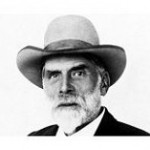
Robert Bridges
(1844 – 1930)
Melancholia
The sickness of desire, that in dark days
Looks on the imagination of despair,
Forgetteth man, and stinteth God his praise;
Nor but in sleep findeth a cure for care.
Incertainty that once gave scope to dream
Of laughing enterprise and glory untold,
Is now a blackness that no stars redeem,
A wall of terror in a night of cold.
Fool! thou that hast impossibly desired
And now impatiently despairest, see
How nought is changed: Joy’s wisdom is attired
Splended for others’ eyes if not for thee:
Not love or beauty or youth from earth is fled:
If they delite thee not, ’tis thou art dead.
Robert Bridges poetry
fleursdumal.nl magazine
More in: Archive A-B, Bridges, Robert
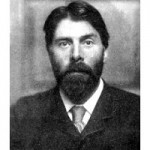
Robert Bridges
(1844 – 1930)
Sweet compassionate tears
Sweet compassionate tears
Have dimm’d my earthly sight,
Tears of love, the showers wherewith
The eternal morn is bright:
Dews of the heav’nly spheres.
With tears my eyes are wet,
Tears not of vain regret,
Tears of no lost delight,
Dews of the heav’nly spheres
Have dimm’d my earthly sight,
Sweet compassionate tears.
Robert Bridges poetry
fleursdumal.nl magazine
More in: Archive A-B, Bridges, Robert

Saint-Étienne-de-Tinée
I
Quatorze Juillet wordt tot in
de kleinste gehuchten gevierd. Hier
in de bergen lijkt het vuurwerk
zelfs op zijn hoogste punt omlaag
te zijn tegen dat zwaarmassief décor.
Wijn vloeit, er wordt gelachen en
beschonken is men katholiek
in hart en ziel, in koor.
De slaap zo’n nacht schijnt
voortzetting te zijn van
feestgedruis en echolach en
vol wordt stilte dan gedroomd.
II
Quinze Juillet. Vanuit het raam van ’t hotel
waarachter jij toevallig even woont zie je
een oude dorpspastoor het plein aanvegen.
Zijn takkenbezem raspt net zo scherp de stilte
weg als het scheermes de stoppels van je wang.
De klokken gaan luiden: heel kalm zet hij
de bezem aan de kant en schuifelt zich
aan het hoofd van de uitvaartstoet die
doorheen de confetti de kerk aandoet.
De morgen na een feest of niet: er
wordt begraven want het leven moet weer door.
Achter de bergen rommelt donder.
Bert Bevers
Eerder verschenen in ’t Kofschip, Dilbeek, 16de jaargang, nummer 5
fleursdumal.nl magazine
More in: Archive A-B, Bevers, Bert
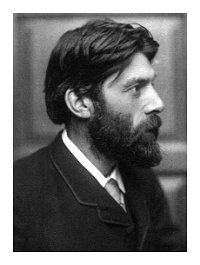
Robert Bridges
(1844 – 1930)
The Evening Darkens Over
The evening darkens over
After a day so bright,
The windcapt waves discover
That wild will be the night.
There’s sound of distant thunder.
The latest sea-birds hover
Along the cliff’s sheer height;
As in the memory wander
Last flutterings of delight,
White wings lost on the white.
There’s not a ship in sight;
And as the sun goes under,
Thick clouds conspire to cover
The moon that should rise yonder.
Thou art alone, fond lover.
Robert Bridges poetry
fleursdumal.nl magazine
More in: Archive A-B, Bridges, Robert
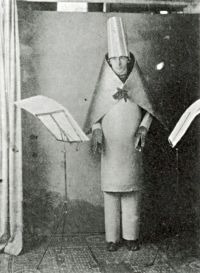 Dada Manifesto by Hugo Ball (1886–1927)
Dada Manifesto by Hugo Ball (1886–1927)
Read at the first public by Dada soirée, Zurich, July 14, 1916.
Dada is a new tendency in art. One can tell this from the fact that until now nobody knew anything about it, and tomorrow everyone in Zurich will be talking about it. Dada comes from the dictionary. It is terribly simple. In French it means “hobby horse”. In German it means “good-bye”, “Get off my back”, “Be seeing you sometime”. In Romanian: “Yes, indeed, you are right, that’s it. But of course, yes, definitely, right”. And so forth.
An International word. Just a word, and the word a movement. Very easy to understand. Quite terribly simple. To make of it an artistic tendency must mean that one is anticipating complications. Dada psychology, dada Germany cum indigestion and fog paroxysm, dada literature, dada bourgeoisie, and yourselves, honoured poets, who are always writing with words but never writing the word itself, who are always writing around the actual point. Dada world war without end, dada revolution without beginning, dada, you friends and also-poets, esteemed sirs, manufacturers, and evangelists. Dada Tzara, dada Huelsenbeck, dada m’dada, dada m’dada dada mhm, dada dera dada, dada Hue, dada Tza.
How does one achieve eternal bliss? By saying dada. How does one become famous? By saying dada. With a noble gesture and delicate propriety. Till one goes crazy. Till one loses consciousness. How can one get rid of everything that smacks of journalism, worms, everything nice and right, blinkered, moralistic, europeanised, enervated? By saying dada. Dada is the world soul, dada is the pawnshop. Dada is the world’s best lily-milk soap. Dada Mr Rubiner, dada Mr Korrodi. Dada Mr Anastasius Lilienstein. In plain language: the hospitality of the Swiss is something to be profoundly appreciated. And in questions of aesthetics the key is quality.
I shall be reading poems that are meant to dispense with conventional language, no less, and to have done with it. Dada Johann Fuchsgang Goethe. Dada Stendhal. Dada Dalai Lama, Buddha, Bible, and Nietzsche. Dada m’dada. Dada mhm dada da. It’s a question of connections, and of loosening them up a bit to start with. I don’t want words that other people have invented. All the words are other people’s inventions. I want my own stuff, my own rhythm, and vowels and consonants too, matching the rhythm and all my own. If this pulsation is seven yards long, I want words for it that are seven yards long. Mr Schulz’s words are only two and a half centimetres long.
It will serve to show how articulated language comes into being. I let the vowels fool around. I let the vowels quite simply occur, as a cat meows . . . Words emerge, shoulders of words, legs, arms, hands of words. Au, oi, uh. One shouldn’t let too many words out. A line of poetry is a chance to get rid of all the filth that clings to this accursed language, as if put there by stockbrokers’ hands, hands worn smooth by coins. I want the word where it ends and begins. Dada is the heart of words.
Each thing has its word, but the word has become a thing by itself. Why shouldn’t I find it? Why can’t a tree be called Pluplusch, and Pluplubasch when it has been raining? The word, the word, the word outside your domain, your stuffiness, this laughable impotence, your stupendous smugness, outside all the parrotry of your self-evident limitedness. The word, gentlemen, is a public concern of the first importance.
Dada Manifesto by Hugo Ball (1886–1927)
Dada soirée, Zurich, July 14, 1916.
fleursdumal.nl magazine
More in: Archive A-B, Ball, Hugo, DADA, Dada
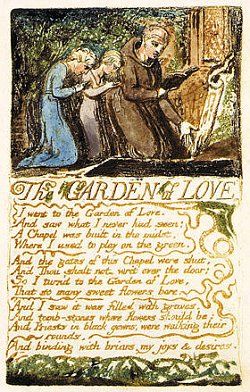
William Blake
(1757-1827)
The Garden Of Love
I went to the Garden of Love,
And saw what I never had seen:
A Chapel was built in the midst,
Where I used to play on the green.
And the gates of the Chapel were shut,
And Thou shalt not writ over the door;
So I turn’d to the Garden of Love
That so many sweet flowers bore,
And I saw it was filled with graves,
And tomb-stones where flowers should be:
And Priests in black gowns were walking their rounds,
And binding with briars my joys & desires.
William Blake poetry
fleursdumal.nl magazine
More in: Archive A-B, Blake, William
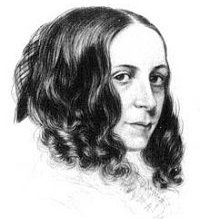
Elizabeth Barrett Browning
(1806-1861)
If Thou Must Love Me
If thou must love me, let it be for naught
Except for love’s sake only. Do not say
“I love her for her smile…her look…her way
Of speaking gently…for a trick of thought
That falls in well with mine, and certes brought
A sense of pleasant ease on such a day” –
For these things in themselves, Belovéd, may
Be changed, or change for thee, – and love, so wrought,
May be unwrought so. Neither love me for
Thine own dear pity’s wiping my cheeks dry, –
A creature might forget to weep, who bore
Thy comfort long, and lose thy love thereby!
But love me for love’s sake, that evermore
Thou mayst love on, through love’s eternity.
Elizabeth Barrett Browning poetry
fleursdumal.nl magazine
More in: Archive A-B, Barrett Browning, Elizabeth
Thank you for reading Fleurs du Mal - magazine for art & literature